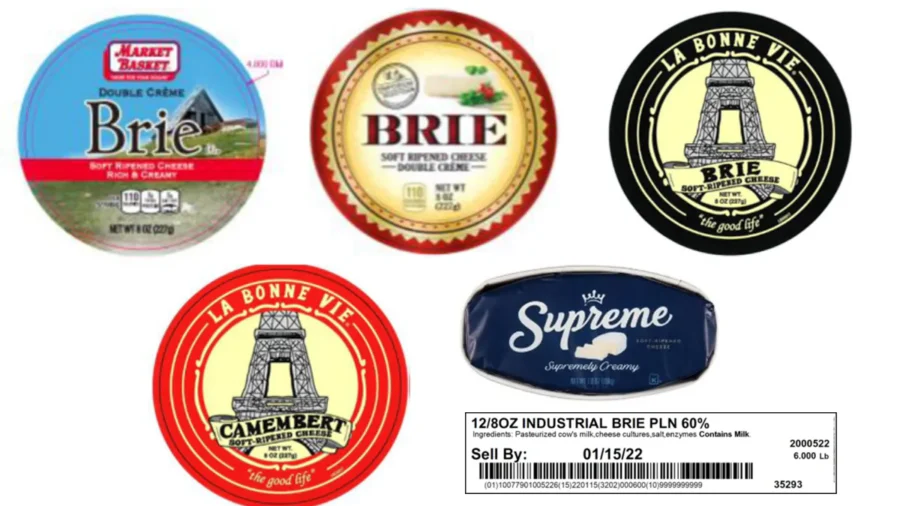Cheese manufacturer Savencia voluntarily recalled a select batch of soft-ripened cheeses over potential listeria concerns over the weekend.
Five different kinds of Brie and one Camembert manufactured at a Savencia Cheese USA facility may have been contaminated with listeria monocytogens, a bacterium known to cause foodborne illness, Kriston Ohm, a Savencia representative, said in a recall notice published through the U.S. Food and Drug Administration.
Routine testing of the processing equipment at the company’s Lena manufacturing plant confirmed the presence of the bacterium.
While testing revealed no finished products stored at the facility were contaminated with listeria, previous batches already expedited have been recalled.
The products affected by the recall are the following:
– Emporium Selection Brie, 12/8oz, with UPC codes 004149811132 and 041498111328
– Supreme Oval 7oz, 6/7oz, with UPC codes 007144850421 and 071448504214
– Market Basket Brie 6/8oz, with UPC codes 004970566630 and 049705666302
– 12/8oz Industrial Brie, UPC code 077901005229
– La Bonne Vie Brie, 6/8oz
– La Bonne Vie Camembert, 6/8oz
All products have a best before date of Dec. 24, 2024.
“Consumers that have any of the recalled products listed … should refrain from consuming them and return them to their place of purchase for a full refund,” Ohm said.
According to the FDA, the potentially affected cheeses had “limited regional distribution” in select stores across the country. Aldi and Market Basket are among the retailers impacted by the Savencia Cheese recall.
“The few retailers that received the product have been informed of this possible contamination and are in the process of removing products from shelves,” Ohm said.
At this time, there have been no confirmed reports of adverse health events due to consumption of these products.
Customers should avoid taking risks, given the potentially grave consequences of a listeria infection.
Listeriotic symptoms usually begin within 24 hours of eating contaminated food, usually last one to three days, and are easily treated with antibiotics.
“Although healthy individuals may suffer only short-term symptoms such as high fever, severe headache, stiffness, nausea, abdominal pain, and diarrhea, Listeria infection can cause miscarriages and stillbirths among pregnant women,” the FDA warned.
According to the Centers for Disease Control and Prevention (CDC), infected pregnant women have a 25 percent chance the baby will not survive, either during pregnancy or shortly after birth, even with just a mild infection.
When the infection spreads beyond the gut, serious invasive illnesses may develop. Symptoms include fever, fly-like muscle aches, confusion, and even seizures. These symptoms usually begin within 2 weeks after eating contaminated food.
According to the CDC, those with a weakened immune system—people with cancer, AIDS, diabetes, liver or kidney disease, etc.—almost always have to be hospitalized when they are infected. They make up three-quarters of Listeria infection cases, with one in six people in this group dying from such infection.

